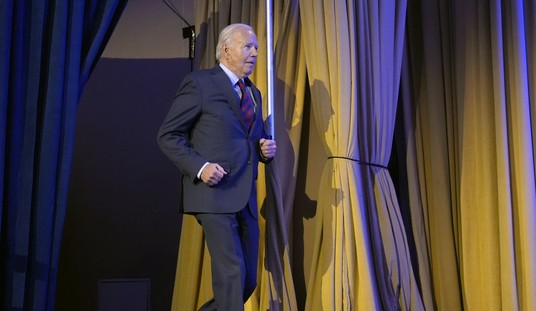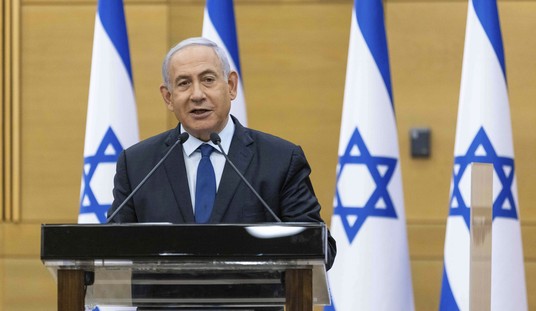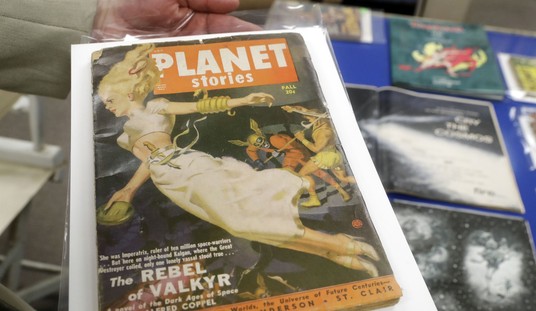Thursday the UN was about to consider yet another tiresome motion by an Arab country to condemn Israel. The country was Egypt, whose leader, President Abdel Fattah el-Sisi, has expressed some admiration for Trump. The subject was the construction of additional settlements with Israel on land claimed by the Islamofascists of the Palestinian Authority.
Ordinarily, this would have been for show. Historically, the Arabs have introduced these resolutions, the Europeans and other anti-Semites have voted for them, and the US has vetoed them. It is a kind of kabuki. This time was different because it appeared that the Obama administration was going to abstain and allow the resolution to pass.
Egypt is a temporary member of the UN Security Council, which is dominated by five permanent members — the United States, the United Kingdom, Russia, China, and France — which have the authority to veto council resolutions. Obama used that authority to block a similar resolution condemning Israeli settlements in 2011, but his administration’s increasingly public frustration with the failure of talks between Israel and the Palestinians raised the possibility that he wouldn’t veto it this time around.
Secretary of State John Kerry acknowledged the appeal of a change in policy when asked about a potential resolution to be authored by French diplomats. “If it’s a biased and unfair and a resolution calculated to delegitimize Israel, we’ll oppose it,” he said at the Haim Saban Forum on December 4. “But it’s getting more complicated now because there is a building sense of what I’ve been saying to you today, which some people can shake their heads, say, well, it’s unfair.”
Kerry emphasized that the Israeli settlements in disputed territory are not the cause of violence, but he argued that were nonetheless a “barrier” to an ultimate peace that was being tolerated by the Israeli government. “I’ll tell you why I know that: because the left in Israel is telling everybody they are a barrier to peace, and the right that supports it openly supports it because they don’t want peace,” Kerry said.
Then Trump took to Twitter
The resolution being considered at the United Nations Security Council regarding Israel should be vetoed….cont: https://t.co/s8rXKKZNF1
— Donald J. Trump (@realDonaldTrump) December 22, 2016
The NY Times picks up the story:
President-elect Donald J. Trump publicly pressured President Obama on Thursday to veto a United Nations resolution critical of Israel, the newly elected leader’s most direct intervention in foreign policy during his transition to power.
Mr. Trump called on the president to use the United States’ veto in the United Nations Security Council to block the Arab-sponsored resolution, which condemned the “construction and expansion” of Israeli settlements in the occupied West Bank and East Jerusalem. The Obama administration, which vetoed a similar resolution in 2011, had withheld judgment over the latest measure.
With the United States’ position publicly in doubt, the resolution was pulled by its sponsor, Egypt, on Thursday morning, hours before the Council was scheduled to vote, and it was unclear when or even if it would be brought back up. But Mr. Trump’s forceful insertion into the matter reflected an unusual public split between incoming and departing presidents, and it highlighted the stark shift on Middle East policy ahead when the new administration takes over in a month.
This is nothing but positive. It is a signal that Trump will act as a friend of the only democracy in that area of the world. His Facebook post gives even more hope that he sees the problem much more clearly than the State Department ever has.
The resolution being considered at the United Nations Security Council regarding Israel should be vetoed.
As the United States has long maintained, peace between the Israelis and the Palestinians will only come through direct negotiations between the parties, and not through the imposition of terms by the United Nations.
This puts Israel in a very poor negotiating position and is extremely unfair to all Israelis.
The only reason the Palestinian issue has not been settled is that the Palestinians and their Arab sponsors realize that if unless the United States is embroiled in the negotiations that the Palestinians have a very weak position and are unlikely to get anything. This is why agreement after agreement fails. The best course of action for the United States in this is leaving the negotiations to Israelis and Palestinians while ensuring Israel’s security and giving it cover in the UN.












Join the conversation as a VIP Member